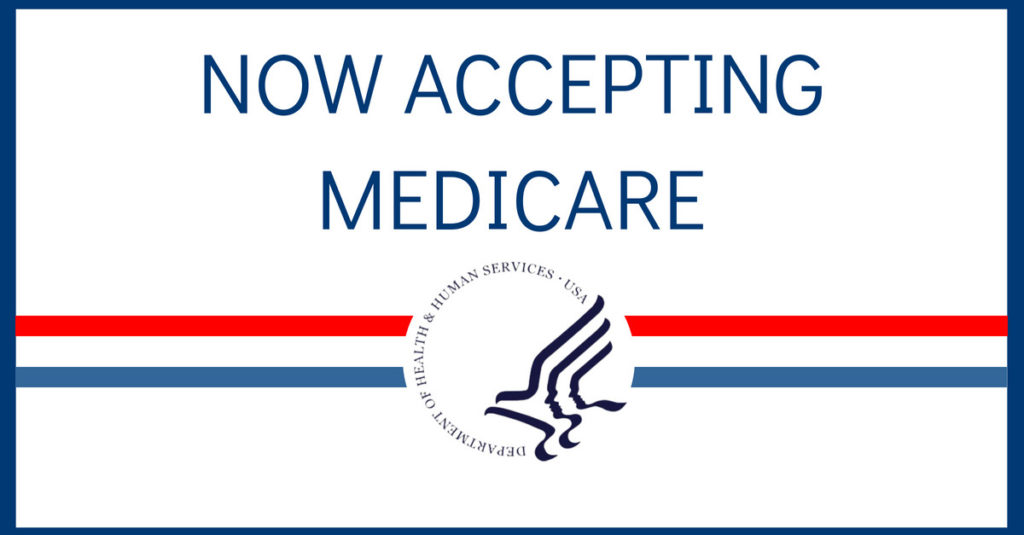Medication-assisted treatment (MAT) combines proven medications and counseling to help you start the path to recovery with comprehensive treatment services. Insurance coverage makes MAT programs affordable for many patients and now, Health Care Resource Centers accepts Medicare coverage for its Accredited Opioid Treatment Programs.
In October 2019, the opioid bill H.R. 6, often referred to as The SUPPORT for Patients and Communities Acts, was signed allowing those with Medicare coverage to continue treatment at a more reasonable cost.
What is Medicare?
Medicare is a national health insurance program in the United States, begun in 1966 under the Social Security Administration. It is now managed by the Centers for Medicare and Medicaid.
There are four parts of Medicare that help cover specific services such as:
- Part A – provides inpatient/hospital coverage.
- Part B – provides outpatient/medical coverage.
- Part C – offers an alternate way to receive your Medicare benefits/Medicare Advantage program.
- Part D – provides prescription drug coverage.
The SUPPORT Act allows MAT programs to accept Medicare Part B.
What Medications Does Medicare Cover as a part of an MAT Program?
With treatment facilities now able to accept Medicare, access to evidence-based MAT programs will increase nationwide for those who may previously have been unable to afford the treatment. Medicare covers the following FDA-approved medications:
- Methadone – Methadone is the gold standard of care for those recovering from an opioid use disorder. As a part of a multi-faceted treatment program for opioid addiction, methadone can help reduce both the cravings and, more importantly, the debilitating withdrawal symptoms that occur when a person is in recovery from opioid misuse, particularly those who have taken very high doses of opioids. Methadone is a synthetic opioid who effects are fully felt, similar to other opioids, but it has a longer half-life meaning that it is effective for a longer period of time. It is able to reduce or eliminate withdrawal symptoms for up to 24-36 hours in most cases. When a therapeutic dose of methadone is taken under medical supervision, its long acting effects are helpful in combating the physical need for opiates, without causing euphoria or a “high”.
- Buprenorphine – Buprenorphine is a prescription medication that works similarly to methadone, but is a partial opioid agonist. This means it impacts the receptors in the brain to a lesser extent while still helping relieve symptoms of withdrawal in patients who have been using prescription or illicit opioids. While doses of this medication can increase their effectiveness, they do have a “ceiling effect”, helping prevent the risk of misuse, dependency and negative side effects. Since this medication is a long-acting agent, it is safe and effective when taken as prescribed.
- Naltrexone/Vivitrol® – Naltrexone is a non-narcotic, opioid antagonist that blocks the receptors in the brain, reducing cravings and preventing the attachment of opioids if taken during treatment. Naltrexone is non-addictive and does not block the product and release of the body’s natural endorphins. Previously approved for the treatment of alcoholism, naltrexone is now being used commonly for the treatment of opioid addiction.
About Health Care Resource Centers
Health Care Resource Centers is known throughout New England as a provider of quality, comprehensive medication-assisted treatment and counseling services. Programs provide addiction education, relapse prevention, lab testing, coordinated care for pregnant patients and referrals to community resources to assist patients on their path to recovery.
Contact Us for More Information
Our staff is available to answer questions about Medicare options for MAT and assist you in finding the right solution for your needs and budget. You can contact Health Care Resource Centers at 866.758.7769 to reach a clinic near you or get in touch through our contact form.




